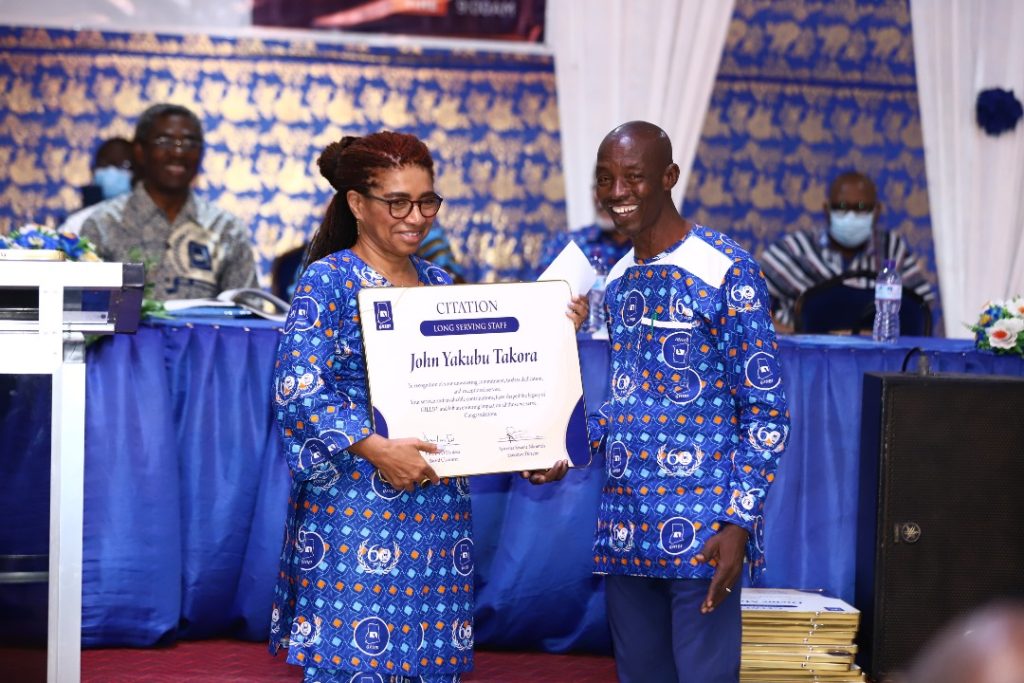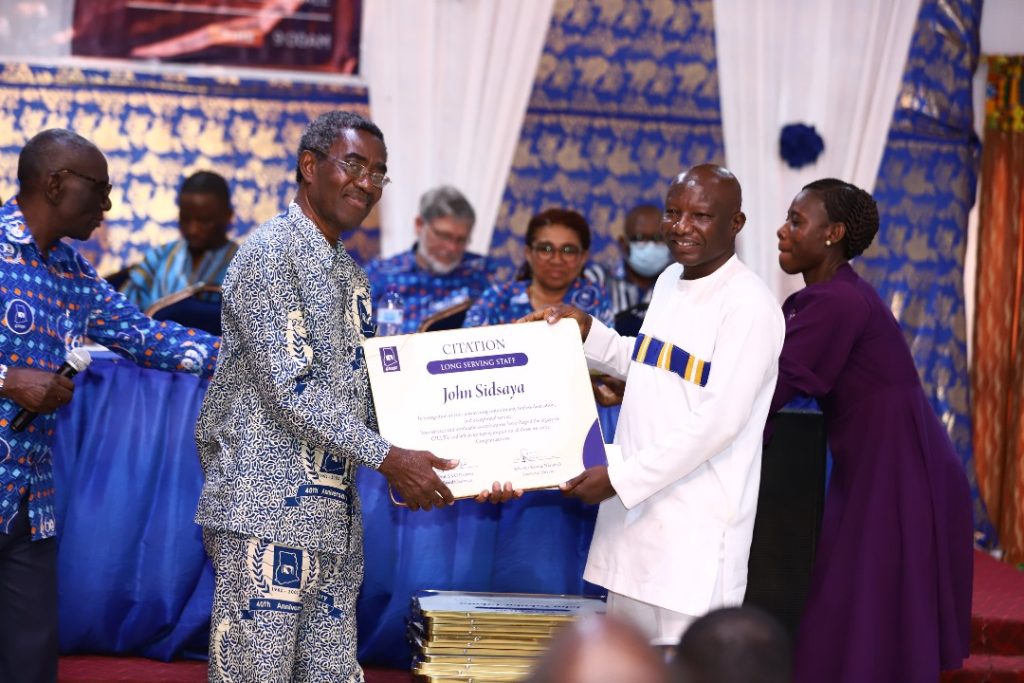By Albert Futukpor
Tamale, Aug. 28, GNA – The retirement age of administrative staff of the Ghana Institute of Linguistics, Literacy and Bible Translation (GILLBT), has been extended by five more years.
They could now retire at age to 65 years, to enable aging staff to mentor young ones to take up their roles.
This formed part of the resolutions approved during the 50th Annual General Meeting (AGM) of GILLBT, held in Tamale, take stock of the 2022 fiscal year, present its financial reports to members, and take important decisions to guide its management in the years ahead amongst other things.

The AGM, which was on the theme: “Effective Collaboration for Maximum Results,” was attended by GILLBT’s staff members, enthusiastic members, global network, and delegates from partner churches across the country.
Mr Sylvester Kwame Nkrumah, the Executive Director of GILLBT, explained the rationale for extending the retirement age saying, “We realise that people are very experienced and sometimes, they are technical as well. And so, when they retire him at 60, they are going away with all that experience, meanwhile, they still have the strength to work.”
Mr Nkrumah said “So, we decided that to allow for them to also continue to mentor people to take over from them, let us turn it to 65, so that they can continue to mentor the younger ones with their experience.
“This is because our work is very technical and when people are going with that technical ability, you do not get immediate replacement.”
He added that “Even very technical people can continue up to 70 years.”

GILLBT, a not-for-profit Christian organisation, was established in 1962 based on a cooperative agreement between the University of Ghana and the Summer Institute of Linguistics (SIL International).
The agreement was coordinated by the Institute of African Studies, and its objective was for GILLBT to complement the government’s efforts at developing Ghana’s languages, making them legible, accessible, and keeping them alive.
After 60 years of existence, GILLBT, with its headquarters in Tamale, made significant contributions to language development, Bible translation and literacy, as it had contributed to the development of 42 of the hitherto undeveloped languages in the country.
It had also provided the University of Ghana with phonologies, grammar, dictionaries, and other anthropological materials in these languages.
Mr Nkrumah expressed appreciation to all staff of the organisation and all its stakeholders for their unwavering determination and dedication over the years.
He said, “The collective effort and sacrifice of every individual within the GILLBT family have culminated in a legacy of transformation and empowerment for communities across Ghana and beyond.”
Alhaji Shani Alhassan Saibu, the Northern Regional Minister, whose speech was read on his behalf, lauded GILLBT for its pivotal role in promoting mother tongue literacy across the country, particularly in the Northern Region.
Professor Seidu Al-Hassan, the Vice-chancellor of the University for Development Studies, whose speech was read on his behalf, recognised GILLBT’s remarkable contribution to the country’s language development.
He noted that “GILLBT’s legacy of excellence in education resonates profoundly. This exceptional quality mirrors the resounding success that you have achieved over the years.”
As a gesture of appreciation for their unwavering commitment, long-serving staff members of GILLBT were presented with citations and undisclosed amounts of money to celebrate their dedicated service to the organisation.
GNA